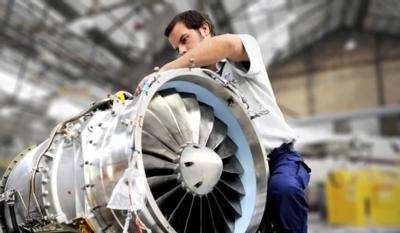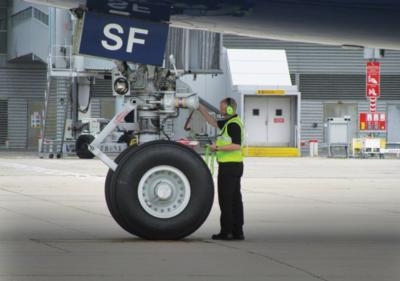Sun, Jun 19, 2016
Courses Developed By Academia And Industry Offer A Balance Of Theoretical And Hands-On Training
AeroAcademy, the University of South Wales (USW) and the Aviation Skills Partnership have created a Professional Aviation Engineering Practice degree level course. With lessons commencing in September 2016, the course is available as a three-year BSc (Hons) Degree or a two-year Foundation Degree.

Both courses are tailored to provide graduates with excellent career opportunities in aerospace and are based on an Aviation Skills Partnership framework and around the European Aviation Safety Agency (EASA) Category B licence. Students will be taught at AeroAcademy, which is located close to Cambridge Airport and the headquarters of Marshall Aerospace and Defence Group; one of the world’s largest independent aerospace companies.
Ian Peart, General Manager of AeroAcademy, comments: “Our collaboration with the Aviation Skills Partnership and the University of South Wales has produced two extremely fit-for-purpose degree courses, leading to excellent career opportunities for the successful graduates - as well as feeding qualified, enthusiastic engineers into the aerospace industry.”

The first two years of training/education are common to both courses. Year 1 provides the basic knowledge of the principles behind and the practical methods for performing essential engineering tasks; and provides an introduction to the use of design tools, manufacturing techniques and health and safety protocols. Year 2 will present students with the option of pursuing either an EASA Type-B1 licence (which focuses on the mechanical engineering aspects of aircraft design) or a Type–B2 licence (which focuses on the avionics systems used in aircraft design).
Year 3 – for the BSc (Hons) Degree only – covers a range of topics around the aerospace business environment. Students will, for example, learn about a variety of aeronautical engineering issues, including planning, operations, health and safety, regulations and management.
(Image provided with Marshall Aerospace and Defense Group news release)
More News
He Attempted To Restart The Engine Three Times. On The Third Restart Attempt, He Noticed That Flames Were Coming Out From The Right Wing Near The Fuel Cap Analysis: The pilot repor>[...]
Make Sure You NEVER Miss A New Story From Aero-News Network Do you ever feel like you never see posts from a certain person or page on Facebook or Instagram? Here’s how you c>[...]
From 2009 (YouTube Edition): Leading Air Show Performers Give Their Best Advice for Newcomers On December 6th through December 9th, the Paris Las Vegas Hotel hosted over 1,500 air >[...]
Aero Linx: NASA ASRS ASRS captures confidential reports, analyzes the resulting aviation safety data, and disseminates vital information to the aviation community. The ASRS is an i>[...]
“For our inaugural Pylon Racing Seminar in Roswell, we were thrilled to certify 60 pilots across our six closed-course pylon race classes. Not only did this year’s PRS >[...]
 NTSB Final Report: Rutan Long-EZ
NTSB Final Report: Rutan Long-EZ ANN FAQ: Turn On Post Notifications
ANN FAQ: Turn On Post Notifications Classic Aero-TV: ICAS Perspectives - Advice for New Air Show Performers
Classic Aero-TV: ICAS Perspectives - Advice for New Air Show Performers ANN's Daily Aero-Linx (06.28.25)
ANN's Daily Aero-Linx (06.28.25) Aero-News: Quote of the Day (06.28.25)
Aero-News: Quote of the Day (06.28.25)




